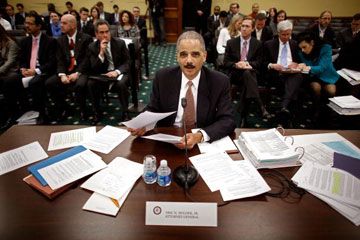John Nance "Cactus Jack" Garner, who served as vice president under Franklin D. Roosevelt from 1933 to 1941, once dismissed the office of vice president as worth less than a pitcher of warm urine [source: Morrow]. One can only imagine what even more distasteful comparison Cactus Jack would have concocted for a job that's even lower on the political food chain -- the post of state lieutenant governor.
Lieutenant governor is a job that's held in such low regard that five states -- Arizona, Maine, New Hampshire, Oregon and Wyoming -- don't even bother having one [source: Hurst]. In Minnesota, the state legislature recently considered a proposal to eliminate the $78,000-a-year job, on the grounds that the lieutenant governor doesn't have enough to do to justify the salary. "There is one section in the state constitution that mentions the position, saying that the lieutenant governor is elected with the governor for purposes of succession," Hamline University law school professor David Schultz testified in a hearing. "But outside of that, what do they do? They wait for the governor to die, get sick or go on vacation" [source: Sundquist].
Advertisement
But perhaps that's not entirely fair. Standing in for the state's top executive is an important job. The nation's 45 lieutenant governors sit on university boards and head government commissions. Many of them constitutionally preside over their state senates, which allows them to wield influence over legislation and occasionally to cast important tie-breaking votes. When they're not doing that, they're posing for grip-and-grin photos at Boy Scout dinners and the like to enhance their name recognition with voters who may eventually elevate them to the top office. And let's face it, that's what they usually hope for.
In this article, we'll tell you more about what lieutenant governors do and why politicians clamor to be elected to the post. But first, let's take a look at how they get into office in the first place.
Advertisement


